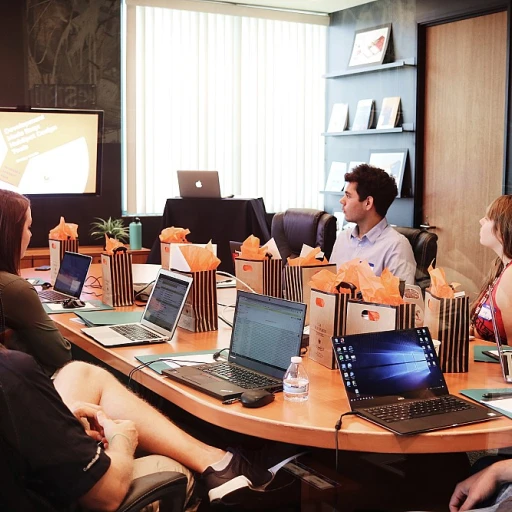Defining Light Duty Work
Clarifying Light Duty Work
Understanding the concept of light duty work is essential in HR job interviews, particularly when discussing work restrictions and compensation benefits. Light duty work refers to assignments that an injured worker may perform within their medical restrictions, typically prescribed by a treating physician, allowing them to return to work without compromising their recovery.
Employers often offer light duty jobs as a way to accommodate employees who have sustained a work injury. This approach not only facilitates faster reintegration of workers into the workforce but also helps in managing workers' compensation costs. Light duty work is a common practice to ensure that employees can fulfill roles that cater to their current physical limitations while benefiting from continued employment and compensation benefits.
Moreover, understanding the nuances of light duty work involves recognizing the balance between an employer's need to maintain productivity and an employee's need to heal. When discussing this topic during HR job interviews, candidates should demonstrate a comprehensive understanding of how light duty roles function within the context of workers' compensation and employment law.
Exploring the role of light duty work in HR may involve delving into the logistics of managing such positions and the legal implications surrounding reasonable accommodation, work injury management, and employer obligations. This knowledge is vital not only for grasping the subject but also for showcasing expertise in HR roles, particularly in environments where managing workplace injuries is pertinent.
Read more about internal equity in HR job interviews.
The Role of Light Duty Work in HR
The Importance of Light Duty Work in Human Resources
Light duty work plays an integral role in HR management, especially when addressing employee injuries and their subsequent return to work. Understanding how light duty work functions within an organizational structure is crucial to navigating HR job interviews effectively.
For employers, light duty work is not just a means to manage workforce productivity but also a strategic approach to accommodate injured workers under work restrictions. This can mitigate the risk of prolonged absences and potential legal implications related to personal injury claims. Employers may offer light duty roles to support injured employees as they transition back into their regular duties.
An effective light duty program considers the medical restrictions prescribed by the treating physician and adapts the duties accordingly. This ensures that employees can work within their capabilities while recovering. By offering reasonable accommodation, the employer not only aids in the employee's rehabilitation but also optimizes the utilization of workforce resources.
When discussing light duty work during an HR job interview, it is essential to highlight your understanding of workers' compensation benefits and how they relate to duty jobs. Demonstrating knowledge in this area shows that you are equipped to handle scenarios involving workers comp issues and support the employer's compliance with state regulations, such as those in Virginia.
Moreover, HR professionals are expected to balance the company's operational needs with the rights and well-being of employees. Successfully managing light duty can enhance employee retention and morale while ensuring adherence to compensation benefits requirements.
For those preparing for HR interviews, it's important to familiarize yourself with
understanding notice payment in lieu for relevant insights. This knowledge complements the comprehension of light duty processes and how they serve both the employee and the organization.
Preparing for HR Interviews with a Focus on Light Duty Work
Strategies to Highlight Light Duty Work Experience in Interviews
When preparing for HR interviews, especially when light duty work themes take center stage, it is beneficial to strategically showcase your experience. Here are a few approaches to ensure you effectively communicate your understanding and skillset:
- Understand Your Medical Restrictions: Before stepping into an interview, gaining a clear understanding of any medical restrictions that might affect your ability to undertake light duty tasks is critical. Employers will appreciate your candidness about any work restrictions and your proactive approach to managing them in the workplace.
- Emphasize Your Problem-Solving Skills: Light duty work often involves finding reasonable accommodations for injured workers to facilitate their return to work. Highlighting situations where you have successfully navigated compensation benefits and offered light duty roles can showcase your resourcefulness and empathy.
- Familiarize Yourself with Workers Compensation Policies: Demonstrating an awareness of workers compensation and work injury policies can set you apart. Knowing how light duty work factors into a worker's comp benefits can illustrate your capability to support both employer and employee needs.
- Research the Employer's Policy: Before your interview, investigate the potential employer's policies regarding light duty work. Being informed about the Virginia workers compensation regulations, or similar regulations in the relevant geographic area, can be advantageous.
- Review Common Light Duty Scenarios: Being prepared with examples of light duty scenarios you have managed, including how you liaised with the treating physician to determine suitable duties, will help you illustrate your practical experience.
For a broader perspective on preparing for HR roles, exploring employment opportunities can provide additional insights. By familiarizing yourself with these strategies, you'll be better positioned to articulate how your background with light duty work and workers compensation aligns with the employer's needs during your HR interview.
Common Interview Questions About Light Duty Work
Key Questions Related to Light Duty Work
In HR job interviews, candidates can expect to be asked a variety of questions that assess their understanding and handling of light duty work situations. These questions help employers gauge how well you can manage light duty roles, understand workers' compensation processes, and facilitate injured workers' return to work.
- Understanding and Implementation:
- How do you determine which duties are appropriate when an employee is under work restrictions?
- Can you describe a time when you had to negotiate duty work with both the doctor and the employee to ensure medical restrictions were met?
- Communication and Coordination:
- How do you communicate with an injured worker and their treating physician to craft an effective return work plan?
- What steps do you take to inform other workers and departments about an employee's new light duty role to ensure a smooth reintegration?
- Compliance and Regulation:
- Are you familiar with legal regulations or reasonable accommodation requirements related to workers comp and personal injury? How have you applied this knowledge?
- How do you ensure compliance with workers compensation laws when offering light duty roles?
- Evaluating Impact and Effectiveness:
- Can you provide an example of how implementing a light duty job benefited both the employer and the employee’s compensation benefits post-injury?
These questions not only reveal your understanding of light duty work but also your ability to balance employee needs and employer requirements effectively.
Assessing Candidate Competency in Light Duty Work
Evaluating Competency in Light Duty Roles
When it comes to assessing a candidate's competency in handling light duty work, employers need to focus on several critical aspects that not only pertain to the work itself but also encompass broader implications such as workers compensation and employee benefits. Here's how to approach the evaluation process effectively:
- Understanding of Light Duty Work: Candidates should have a clear understanding of what light duty work entails. This includes having knowledge about work restrictions and the role of the treating physician in determining these duties. A comprehensive grasp of light duty assignments and their purpose in facilitating an injured worker's return is essential.
- Experience with Workers Compensation: Assess whether the candidate has experience managing cases related to workers comp. This includes understanding how compensation benefits are calculated and the interplay between medical restrictions and the duty job. Knowing how to offer light duty work that aligns with the employee's work restrictions is a crucial skill.
- Ability to Communicate with Stakeholders: Effective communication with all stakeholders, including the injured employee, medical professionals, and other involved parties like workers compensation insurers, is vital. Candidates should demonstrate the ability to coordinate free consultation sessions and discuss reasonable accommodation options.
- Problem-Solving Skills: The ability to creatively and effectively solve problems that may arise during the transition of an injured worker back into their role is important. Employers should evaluate how candidates propose to tackle challenges related to personal injury and ensuring that the accommodations are feasible within company policies.
- Knowledge of Legal and Regulatory Framework: Familiarity with the legal aspects, such as Virginia workers compensation laws or other relevant regional legislations, is critical. Candidates must demonstrate they understand the implications of these laws on light duty roles and can ensure compliance in all actions taken.
By focusing on these key areas, employers can gain a comprehensive view of a candidate's ability to manage light duty work. This helps ensure that the chosen candidate will not only meet the immediate needs of the injured worker but also support the organization's long-term goals regarding employee welfare and compliance.
Post-Interview Considerations for Light Duty Work
Reflecting on Key Takeaways After the Interview
Once the HR job interview wraps up, your post-interview process doesn't end just yet. Reflecting on the discussion surrounding light duty work is crucial for both the employer and the candidate. Here's what you should consider:
- Employer's Perspective: After the interview, employers should assess the candidate's understanding of light duty roles and the insights they provided on accommodating injured workers. Evaluate whether the applicant appreciates the complexities of workers' compensation, and if they can ensure a seamless return to work for employees within medical restrictions.
- Candidate's Perspective: Reflect on how well you articulated your knowledge of light duty work, the benefits for injured workers, and your ability to collaborate with treating physicians. Consider whether you effectively communicated how you would handle work restrictions and facilitate the return of injured employees to duty work. Identifying areas where you struggled can guide your preparation for future interviews.
- Feedback and Follow-up: Both parties should consider exchanging feedback. Employers can discuss their impressions and expectations about the role, while candidates might follow up with questions or thoughts about the job offer and compensation benefits.
This reflection is essential for ensuring that the understanding of duty restrictions and reasonable accommodation is mutual and comprehensive. A robust review can further cement a candidate’s suitability for a role or an employer's attractiveness as a prospective workplace, enhancing professional growth.














